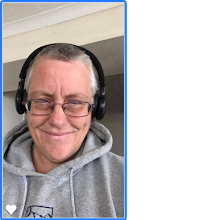What do you call a researcher with learning disabilities?
Most people call them a 'co-researcher'. We think that's OK as long everyone doing the research is called a co-researcher. But if you have 'the researcher' working with 'the co-researcher', it's like saying only one of them is a real researcher. We often hear people talking about the researcher and the co-researcher. It's like having a Chair and a Co-chair, rather than two Co-chairs. That annoys us because if you don't need them both then why have them both in the team? And if you do need them both, why give one a higher status just because the knowledge and experience they bring is different? So rather than using the term co-researcher, we prefer to say academic researcher and activist researcher. When they do research together we might call them both co-researchers if we need to, but usually we would talk about them co-researching. Researching together is an activity, not an identity or a status. And Barod researchers don't need an identity that says they can only co-research. We are quite able to do research by ourselves too.
But then we were thinking about why you need activist researchers, or co-researchers, or whatever you choose to call them/us. What do they bring that other researchers can't bring?
In social research, people talk about insider research. This is social researchers who go and research their own community or work place. That sounds a bit like most of the research done by researchers with learning disabilities. So then we wondered why people don't usually call them insider researchers. Maybe that's because academics aren't quite sure if a researcher with learning disabilities fully deserves the status and label of being a social researcher. If we had time [that's Barod-speak for 'please pay us for the time'!] we would love to compare the literature about insider research with the literature about participatory research. There could be a lot to learn about why and how to do participatory research by looking at the lessons from insider research.
In ethnography, social researchers rely on gatekeepers to give them access and credibility. We know this is an important role of activist researchers. Without activist researchers in the team, academic researchers would need to find gatekeepers. With activist researchers in the team, access and credibility can happen via the researchers' insider status without needing to go and find a gatekeeper. We do wonder sometimes if using the term co-researcher can go hand in hand with thinking of activist researchers a bit like glorified gatekeepers: someone who stands with one foot in the world being researched and one foot in the academic world of research, but who doesn't really belong in their own right in the academic world of research.
We will keep thinking. We don't have the answers. We would like to know what other researchers think.
Most people call them a 'co-researcher'. We think that's OK as long everyone doing the research is called a co-researcher. But if you have 'the researcher' working with 'the co-researcher', it's like saying only one of them is a real researcher. We often hear people talking about the researcher and the co-researcher. It's like having a Chair and a Co-chair, rather than two Co-chairs. That annoys us because if you don't need them both then why have them both in the team? And if you do need them both, why give one a higher status just because the knowledge and experience they bring is different? So rather than using the term co-researcher, we prefer to say academic researcher and activist researcher. When they do research together we might call them both co-researchers if we need to, but usually we would talk about them co-researching. Researching together is an activity, not an identity or a status. And Barod researchers don't need an identity that says they can only co-research. We are quite able to do research by ourselves too.
But then we were thinking about why you need activist researchers, or co-researchers, or whatever you choose to call them/us. What do they bring that other researchers can't bring?
In social research, people talk about insider research. This is social researchers who go and research their own community or work place. That sounds a bit like most of the research done by researchers with learning disabilities. So then we wondered why people don't usually call them insider researchers. Maybe that's because academics aren't quite sure if a researcher with learning disabilities fully deserves the status and label of being a social researcher. If we had time [that's Barod-speak for 'please pay us for the time'!] we would love to compare the literature about insider research with the literature about participatory research. There could be a lot to learn about why and how to do participatory research by looking at the lessons from insider research.
In ethnography, social researchers rely on gatekeepers to give them access and credibility. We know this is an important role of activist researchers. Without activist researchers in the team, academic researchers would need to find gatekeepers. With activist researchers in the team, access and credibility can happen via the researchers' insider status without needing to go and find a gatekeeper. We do wonder sometimes if using the term co-researcher can go hand in hand with thinking of activist researchers a bit like glorified gatekeepers: someone who stands with one foot in the world being researched and one foot in the academic world of research, but who doesn't really belong in their own right in the academic world of research.
We will keep thinking. We don't have the answers. We would like to know what other researchers think.

Comments
Post a Comment